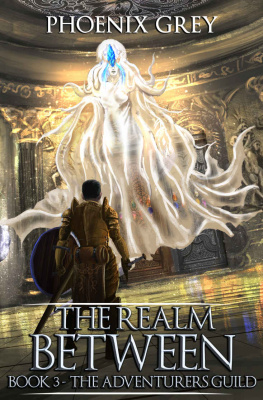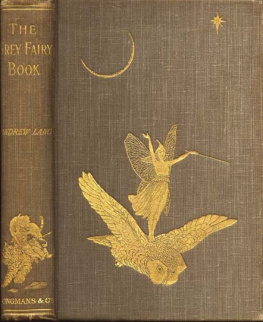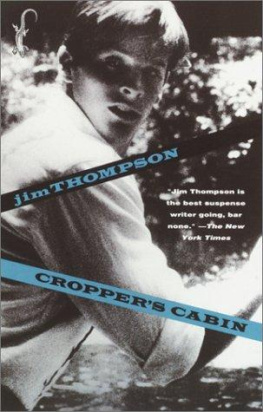This edition is published by PICKLE PARTNERS PUBLISHINGwww.pp-publishing.com
To join our mailing list for new titles or for issues with our bookspicklepublishing@gmail.com
Or on Facebook
Text originally published in 1936 under the same title.
Pickle Partners Publishing 2016, all rights reserved. No part of this publication may be reproduced, stored in a retrieval system or transmitted by any means, electrical, mechanical or otherwise without the written permission of the copyright holder.
Publishers Note
Although in most cases we have retained the Authors original spelling and grammar to authentically reproduce the work of the Author and the original intent of such material, some additional notes and clarifications have been added for the modern readers benefit.
We have also made every effort to include all maps and illustrations of the original edition the limitations of formatting do not allow of including larger maps, we will upload as many of these maps as possible.
TALES OF AN EMPTY CABIN
BY
WA-SHA-QUON-ASIN (GREY OWL)
A NOTE ON THE AUTHOR
During the latter years of his life, Grey Owl was a beloved public figure in both Canada and Britain. Readers thrilled to his tales of life in the Canadian bush, and of his hardscrabble background. His father, Grey Owl said, had been a Scotsman adventurer loose on the American Wild West; his mother was an Apache Indian. After growing up on the American frontier, Grey Owl had drifted into Canada and ranged across the countrys vast wilderness as a trapper, woodsman, and riverman.
He had also embraced his Indian heritage, earning the Ojibway name Wa-Sha-Quon-Asin (He Who Walks by Night). With his four books The Vanishing Frontier, Pilgrims of the Wild, The Adventures of Sajo and Her Beaver People, and Tales of an Empty Cabin Grey Owl had established himself as both a charming storyteller and a passionate lover of nature, a conservationist before his time.
After Grey Owls sudden death in 1938, though, a startling truth came out. He was not the man he had claimed to be, but was in fact an Englishman named Archie Belaney, who had emigrated to Canada in 1906 at the age of eighteen. Even Grey Owls close friends and associates like his British publisher Lovat Dicksonwere shocked.
Whatever the truth of Grey Owls origins, though, there can be no doubt of the sincerity of his passion for nature, reflected in the outdoorsmans lifestyle that he rarely strayed from. Books like Tales of an Empty Cabin offer readers the chance to enjoy Grey Owls generosity of spirit, to marvel at the farsightedness of his environmental concerns, and to appreciate his tremendous empathy for the land that nurtured him.
PREFACE
Man, that is civilized man, has commonly considered himself the lord of creation, and has been prone to assume that everything existing on this planet was put there for his special convenience, and that all animals (to say nothing of the subject races of his own kind) were placed on earth to be his servants. And this in spite of the fact that members of many of the backward races are often just as intelligent as he is, and are generally far superior to him physically, and that there are myriads of creatures extant, any one of which could, on even terms, as man to man so to speak, trim him very effectively on less ground than he was born on.
But a wider dissemination of knowledge of the worthwhile attributes, and a growing recognition of the rights of these lesser creatures, has worked, in later days, a somewhat sweeping change in public opinion among the more tolerant and sportsmanlike races of men. So that, whereas kindness and understanding as applied to those supposed to be so far below ourselves in the scale of life, would twenty years ago have excited ridicule, cruelty towards innocent, helpless animals, and the oppression and subjection of free and happy, if somewhat undeveloped peoples, are today regarded with stern disapproval.
The Wilderness should now no longer be considered as a playground for vandals, or a rich treasure trove to be ruthlessly exploited for the personal gain of the fewto be grabbed off by whoever happens to get there first.
Man should enter the woods, not with any conquistador obsession or mighty hunter complex, neither in a spirit of braggadocio, but rather with the awe, and not a little of the veneration, of one who steps within the portals of some vast and ancient edifice of wondrous architecture. For many a man who considers himself the master of all he surveys would do well, when setting foot in the forest, to take off not only his hat but his shoes too and, in not a few cases, be glad he is allowed to retain an erect position.
And he might come to it, at that; for the woods, in time, sometimes a very short time, will make either a man or a monkey of you. I know they have humbled me; and a lifetime spent in the calm majestic presence of the trees, a life-long association with creatures who, deficient in the technique of deceit and vice, will never betray me, of consorting with men who sometimes forget to remember that they are Gods gift to the Universe, and the spending of my days in a region where the immeasurable immensity of my surroundings is ever before my eyes have, collectively, rather dwarfed my conception of my own importance in the general scheme of things.
And it is reflections such as these that finally aroused in me a distaste for killing, and brought a growing feeling of kinship with those inoffensive and interesting beasts that were co-dwellers with me in this Land of Shadows and of Silence. So that ultimately I laid aside my rifle and my traps and like Paul, worked for the betterment of those whom I had so assiduously persecuted.
In order to remove this idea from the realm of pipe-dreams and put it on a basis of reasonable practicability, it was necessary to arouse public interest, to enlist public opinion on my side. To do this I had first, not only to show that I knew what I was talking about, but would have to demonstrate. With this end in view, and greatly because of the company these highly intelligent animals gave to me, I established a colony of beaver, and these docile and friendly creatures, faithful as well-trained dogs, attached themselves to me unconditionally, and are with me yet. Their general behaviour, and the remarkable mental attributes they manifested, convinced me that the salvation of this useful and valuable animal, representative not only of all North American Wild Life but of the Wilderness itself, was a worthwhile undertaking. And so it has proved; for with my further and more ambitious resolution to broaden my field of activity to include Wild Life in general, I have found that in the beaver, with its almost human, very nearly child-like appeal, I had seized on a powerful weapon. Placed in the vanguard, the beaver constituted the thin end of the wedge.














